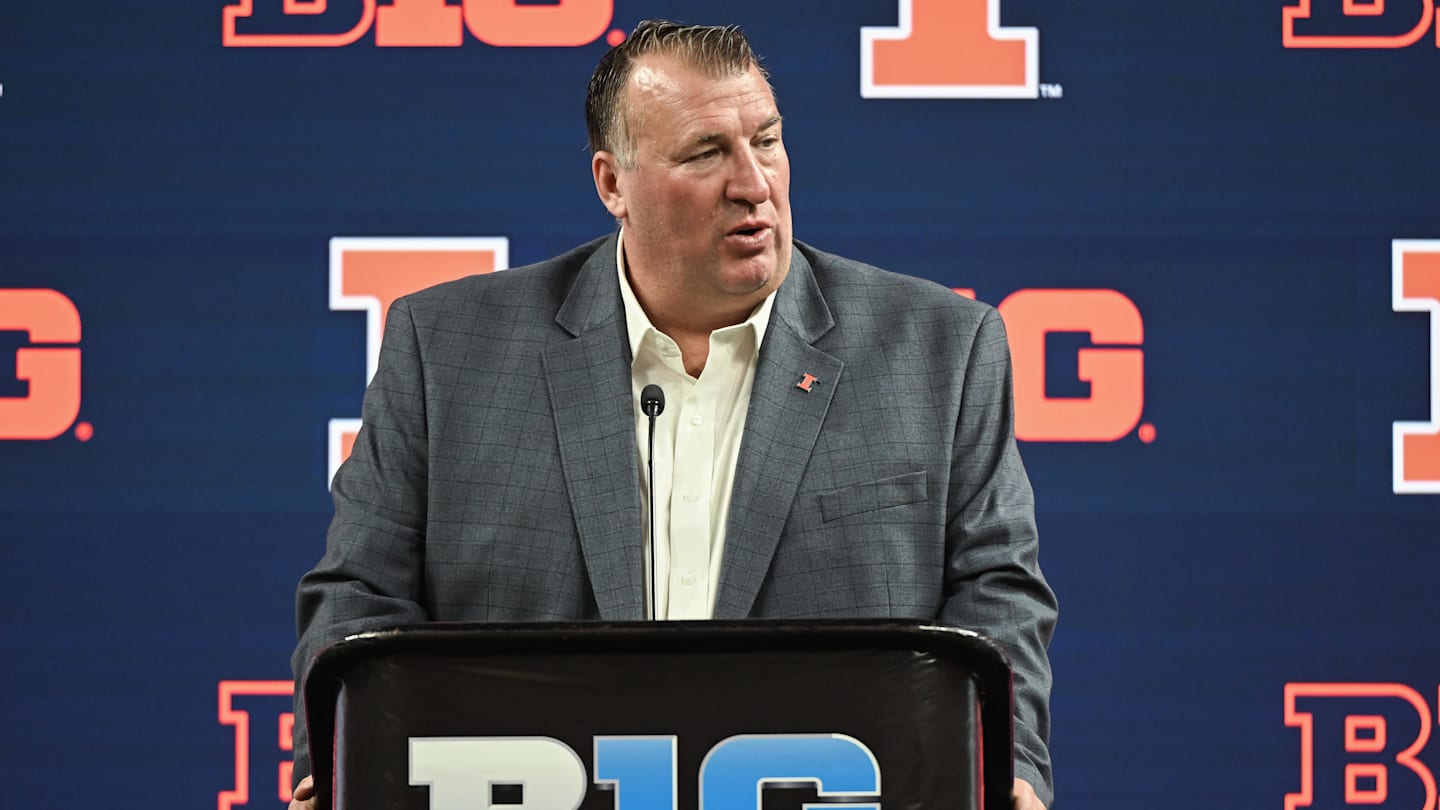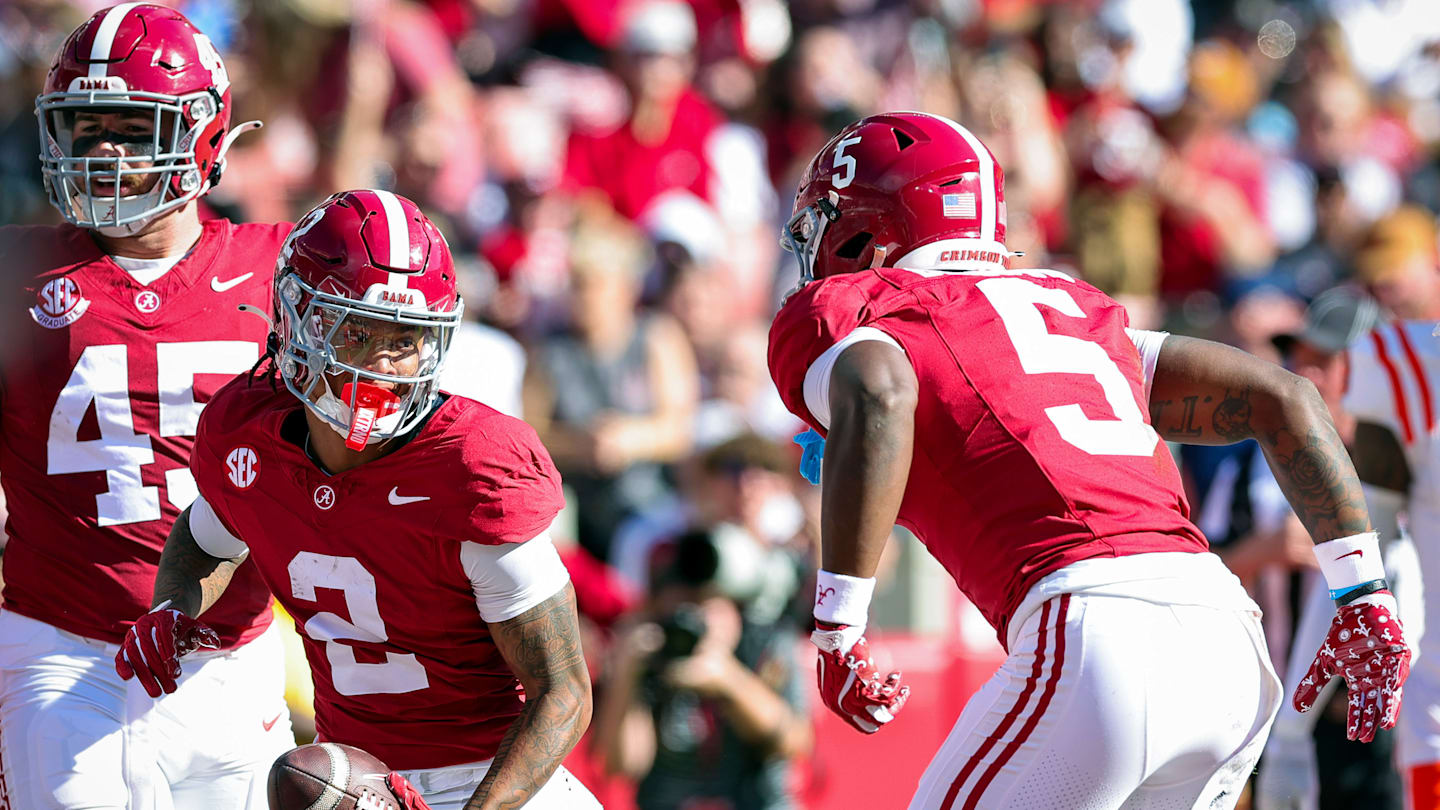What Is the Future of College Football – and Illinois’ Role in It?

The landscape of college athletics has traditionally moved about as quickly as the tectonic plates. But, lately, it has been hard to keep up with all the changes – especially in football, where the ground is shifting underneath our feet even now.
The players are getting paid.
Texas is in the SEC.
The Big Ten has – wait – how many teams?
The average fan may feel all kinds of ways about these developments, but at least one change that seems to have been universally well-received is the number of great matchups that seem to be falling into our laps. For instance, although No. 4 Ohio State at No. 1 Oregon may not be the first matchup that comes to mind when you think of an old-school Big Ten slobberknocker, that fact took nothing away from the entertainment value the game delivered in the Ducks’ 32-31 win in Week 7.
Similarly, no one said boo when No. 2 Georgia clashed with No. 6 Texas in Week 8, and nor was an eye batted when the Longhorns’ learned just what a “down week” in the SEC looks like in their Week 9 nail-biter over the darling of the 2024 college football season, Vanderbilt.
Nostalgia is great, but it’s hard to beat a great college football matchup this Saturday afternoon.
Still, amid all the conference-jumping, realignment and unfamiliar matchups, an obvious question arises:
Are we done yet?
And the short answer is: nope.
Ongoing, football-centric discussions have been taking place between the Big Ten and SEC for some time now, and more significant changes appear to be on the way. Specifically, the creation of a single major conference seems inevitable – or, as many are calling it, a “superconference.”
That leads to a separate question – one that lands a little closer to home:
This so-called superconference … will Illinois be in it?
To offer another short response: Maybe? That’s not a cop-out – it really does depend on several factors. If the Big Ten and SEC ultimately do combine forces, they can be expected to prioritize holding on to the best (and highest-earning) programs while poaching the cream of the remaining college football crop from elsewhere.
So how can the Illini qualify as a keeper? It’s simple:
Win.
The equation comes down to something like this: victories = attendance, viewership and moolah. The college athletics powers that be have finally stopped hiding behind the thin, tattered curtain of amateurism and revealed the big-money business behind it – again, especially in football. For better or worse, at least fans are no longer expected to participate in a eye-rolling game of make-believe.
The creation of a superconference would drop the last ridiculous pantomimes of that charade, and would look like the start of an enormous pickup game, with the top 40-60 college football schools being hand-picked for participation. Nearly all will be recognized for their storied football histories or recent breakthroughs leading to trenchant success. That likely positions the Illini on what we might as well call the bubble.
Teams on the outside looking into a superconference would, in theory, land in a second-tier category. Given that there are currently 134 FBS schools, there might also be a third-tier group as well. Potentially, a Premier League-style relegation system could be implemented, allowing, say, 6-8 schools that outperform all the others in their league to replace the next-highest league’s 6-8 bottom finishers every year. It would amount to an egalitarian system – or something resembling it – that could also help ensure competitive balance, give second- and third-tier programs something to strive for and drive fan interest (and, of course, profits).
Prior to this season, the Illini seemed poised not to make the cut for a top league. Having finished with a winning football record just once since 2011, Illinois appeared to be a sure-fire Tier 2 team. The Illini aren’t college football bottom-feeders – they face premier competition in the Big Ten year in and year out – but neither have they been a consistent top-50 program.
As one of the surprises of the 2024 season, however, Bret Bielema’s Illini appear to be on the verge of opening a new chapter in Champaign. After a 6-2 start and having slayed three Top 25 foes, Illinois ranks No. 24 and has a favorable season-ending slate that could lead not only to a major bowl but also new, never-before-seen heights.
Maintaining this level of success, or even – why not? – surpassing it, is the only way the Illini can ensure it gets to hang with college football’s big boys. And make no mistake: Their position is precarious. In the discussion of who gets relegated from the Big Ten in a proposed superconference, there’s an easy Northwestern joke in there. But if an Illinois football fan considers the histories of the other Big Ten programs and then looks east to what’s happening at Indiana and thinks of the current push being made by Saturday’s opponent, Minnesota (11 a.m. CT, on FS1), suddenly the gallows humor doesn’t seem so funny at all.
There’s nothing set in stone, of course, but extensive changes appear to be on the horizon. If a superconference is coming, Illinois has no time to waste. The stakes in 2024 may prove to be a lot higher than the final act in a single jubilant season. We may soon look back at this time as an inflection point for Illinois’ football program – or as just a blip on the radar toward relegation.
Big Ten Football Week 10 Power Rankings: Oregon Soars, Illinois Tops ‘Others’
Illinois Football vs. Minnesota: Early Week 10 Weather Report and Game Conditions
3 Key Numbers to Watch for Illinois Football vs. Minnesota in Week 10
Illinois Football Star Named Semifinalist for Prestigious National Award
Related
Alabama football’s 2025 WR room is giving “Ryde Outs” vibes
Alabama football's WR room stagnated in the final years of the Nick Saban era in Tuscaloosa. The Crimson Tide went from a dominant run of recruiting and develop
Does Michigan Football have the experience to make the College…
The Michigan Wolverines made it to the College Football Playoff for the first time in 2021 after beating Ohio State and winning the Big Ten Championship. Sin
Big 12 opener, historic Classic highlights HBCU football schedule
Courtesy of UAPB Athletics PINE BLUFF, AR.– The University of Arkansas at Pine Bluff Golden Lions football team has announced its 2025 HBCU football s
Top ten Ohio State football players entering 2025
There's great news, and just some OK news for the Ohio State football program. The great news is that the Buckeyes made good on their "national title or bust" s












